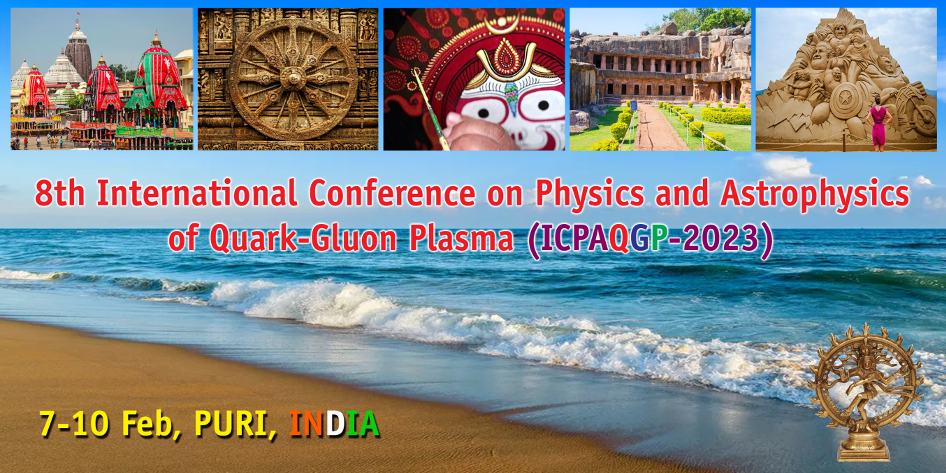Speakers
Description
Short-lived hadronic resonances with widely varying lifetimes provide an excellent tool to study the hadronic phase produced in relativistic heavy-ion collisions. They undergo rescattering and regeneration within the hadronic phase, which modifies their yields. The dynamics of these particles, especially the $K^*(892)^0$ meson, and thus varying yields have been used extensively to study the hadronic phase lifetime. In this work, we explore the applicability of hydrodynamics in the hadronic phase using the Knudsen number ($Kn$). Further, we employ 1+1D second-order viscous hydrodynamics for the evolution of hadronic medium and to obtain the hadronic phase lifetime. The evolution is assumed to break down when the limit, $Kn > 1$, is attained. It is assumed that the particle yield gets preserved at this limit. The obtained lifetime is then used within a transport model for $K^*(892)^0$ mesons modelled by including rescattering and regeneration effects to predict their final state yield. The results obtained in our calculations are qualitatively in agreement with the experimentally obtained hadronic phase lifetime and $K^*(892)^0/K$ ratio.

